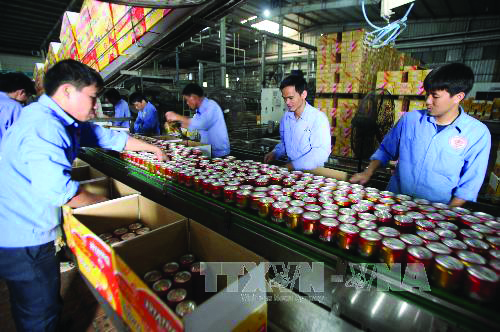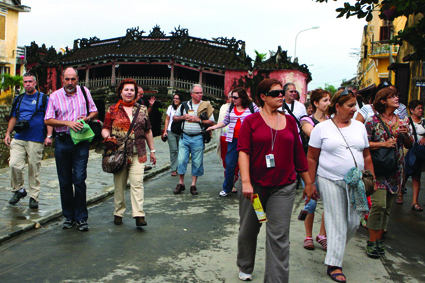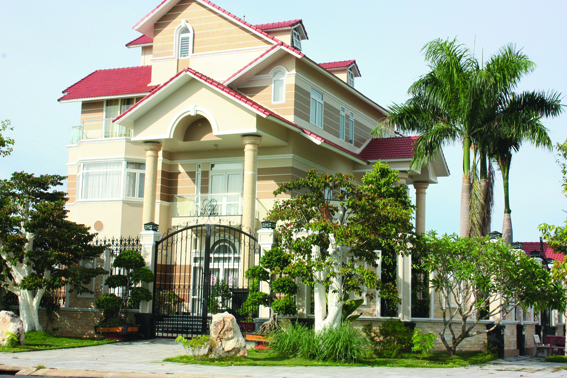The right to silence was brought up for the first time at a session of the National Assembly Standing Committee, immediately triggering wide debate on the issue as prevention and control of injustices and protection of human rights and citizens’ rights of suspects are growing into a major public concern.
Speaking at the National Assembly Standing Committee’s meeting last month to discuss the draft revisions of the Law on Organization of People’s Procuracies and the Law on Organization of People’s Courts, National Assembly Chairman Nguyen Sinh Hung stressed the need for a detainee or defendant to remain silent until his lawyer is present to avoid coercion and torture.
 |
| Nguyen Thanh Chan meets his family after 10 years’ imprisonment for a murder he did not commit __Photo: Doan Tan/VNA |
This content, however, has not been included in the revised draft of the Law on Organization of People’s Courts, displeasing the National Assembly chairman who asked for materialization of the Constitution into the revised draft, including guarantee of defendants’ rights and assurance of equality in adversarial proceedings.
Explaining about the absence of this issue in the draft law, Procurator General of the Supreme People’s Procuracy Nguyen Hoa Binh said opinions about the issue were divergent. Although this right was supported by lawyers, it was not backed by investigation agencies for fear of obstructing the investigation process, Binh said, stressing the need to harmonize the adversarial right and state power.
Investigation agencies held that prompt interrogation of detainees, particularly in cases of dangerous or organized crimes, would facilitate investigation as until a lawyer came, other accomplices might all run away.
Careful preparations must be made before enforcing this right, Lieutenant General Trieu Van Dat, deputy general director of the Crime Prevention and Control Bureau under the Ministry of Public Security, told online service Infonet, saying democracy beyond the country’s level of development might cause serious consequences.
Although agreeing with recognition of the right to silence of the accused, an experienced investigator said this was not the right time to apply it given currently few people could afford inviting a lawyer while procedures for lawyers to participate in procedural activities remained very complicated.
Judge of Bac Ninh province’s Criminal Tribunal Vu Cong Dong told online service VnExpress that once applied, the right to silence would put the burden to invite lawyers on the shoulders of investigation agencies in case defendants could not afford a lawyer. The requirement for presence of lawyers at all questioning sessions was unfeasible, the judge said.
But most lawyers agreed the right to silence should be enforced to ensure human rights and prevent torture which might lead to unjust punishment for detainees and defendants.
In an article published on the Tuoi Tre (Youth) daily, lawyer Nguyen Van Hau, vice president of the Ho Chi Minh City Lawyer Association, voiced his support for the legalization of the right to silence.
In his opinion, this right should be recognized to ensure the country’s implementation of treaties to which it is a contracting party, including the 1966 International Covenant on Civil and Political Rights and the 1984 Convention against Torture and Other Cruel, Inhuman or Degrading Treatment or Punishment. Also, as a member of the United Nations Human Rights Council, Vietnam needs to enact regulations on human rights and establish mechanisms to ensure strict enforcement of these regulations.
Lawyer Hau stressed the need to legalize the right to silence to enforce the right of detainees, arrestees, the accused and defendants to presumption of innocence and the right to defense.
According to him, this was to materialize the 2013 Constitution under which a person who is arrested, held in custody, temporarily detained, charged with a criminal offence, investigated, prosecuted or brought to trial has the right to defend himself or herself in person or find a defense counsel or another person to defend him or her.
The responsibility to prove offences rested with procedure-conducting agencies while the accused or defendants have the right but do not have the obligation to prove their innocence under the Criminal Procedure Code, he said.
Also under this Code, within three days from the date of receiving a lawyer’s request, the investigation agency, procuracy or court must consider and grant a defense counsel certificate for this lawyer to conduct defense or notify him of the reason for refusing to grant such certificate.
But in reality, lawyers could hardly participate in the very first stage of cases to protect the rights and interests of their clients, Hau stressed, pointing to numerous difficulties facing a lawyer in obtaining a defense counsel certificate for participating in questioning sessions. In most cases, lawyers could involve only when it came to the stage of investigation completion or prosecution by the procuracy.
Sharing this point, lawyer Dang Van Cuong from the Hanoi Bar Association said lawyers’ right to participate in the stage of arrest was not guaranteed in reality. Under the Ministry of Public Security’s Circular No. 70 of 2011, a lawyer can participate in a case only when an arrestee himself writes an invitation to the lawyer or writes a request to his family to invite the lawyer. This was hardly feasible in practice as the arrestee, often in a state of panic, did not know to invite whom as well as how to send the invitation while the investigation agency might refuse to grant a defense counsel certificate once there was information that the arrestee did not invite a lawyer, Cuong told online service Baomoi.com, adding unfortunately, it was not that easy to verify this information.
A lawyer who was “lucky” enough to participate in the very first stage of investigation still found it hard to execute his defense right as investigators might question the arrestee at any time in the absence of the lawyer as this was not prohibited by law, Cuong pointed out, saying the presence of lawyers in many cases was just formalistic as testimonies were already made in other interrogation sessions.
Lawyer Hau also believed recognition of the right to silence would help prevent unjust judgment and coercion, torture and other violations which have recently increased given investigators’ tendency to value testimonies rather than evidence. Hau was confident that lawyers’ participation in the very first stage would help clarify the case, protect rights and interests of the detainees and supervise the conduct of procedures without obstructing investigation activities as often believed by investigators.
Permission for suspects to remain silent and provide answers only in the presence of their lawyers would be a remarkable change in procedural activities, former chairman of the National Assembly’s Legal Committee Vu Duc Khien told VnExpress, believing this would immediately stop coercion and torture.
He cited a case of denunciation in which an investigator smoked when interrogating a suspect being a smoke addict, asking the suspect to plead guilty in order to be allowed to smoke. Such coercion would be avoided if lawyers were present when suspects were questioned, Khien said.
Procurator of the People’s Procuracy of District 3, Ho Chi Minh City, Nguyen Van Chung acknowledged valuation of testimonies rather than evidence remained a common practice in criminal procedure activities. Investigation agencies tended to feel secured only when the accused themselves admitted their offenses even though evidence was available, Chung was quoted by the Tuoi Tre as saying.
Vice chairwoman of the National Assembly’s Justice Committee Le Thi Nga also agreed investigators, prosecutors and judges attached much importance to admissions of guilt. The accused who were concluded under judgments to lack honesty and reject offenses, thus obstructing the investigation, prosecution and trial processes, were likely to be exposed to higher punishment even though failure to give testimonies or truthful testimonies was not regarded as an aggravating circumstance, she told the Tuoi Tre.
Judge of Criminal Tribunal of Ho Chi Minh City People’s Court Nguyen Minh Canh told VnExpress permission for a person to keep silent when arrested to wait for his lawyer was good not only for him but also for the investigation, prosecution and trial process while the role of lawyers was heightened in the procedural process.
The right to silence, which has been applied in many countries, is the right of the accused or defendant to refuse to make a comment or an answer when questioned in the absence of his/her lawyer to avoid self-incrimination.- (VLLF)




